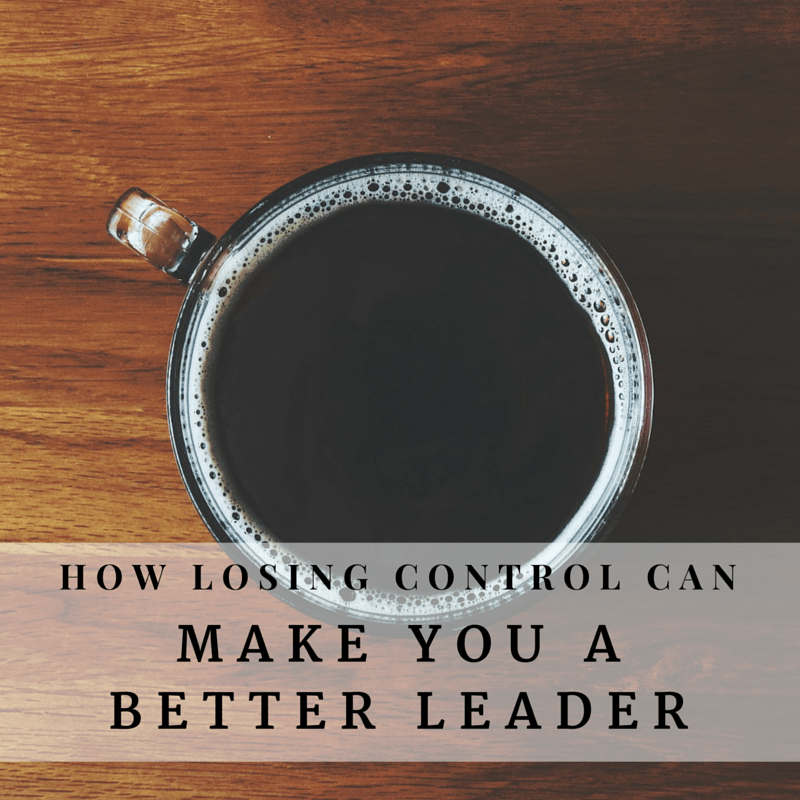
As a mother of a young child, I am constantly on alert. There are sounds that tell you if your child is in trouble, making trouble, or that silence that says “you better come look, because I’m getting into something I REALLY shouldn’t be.” As attentive as I tend to be, in order for my child to grow into an independent, contributing member of society, I can’t keep him as close as I would like all the time. I have to be willing to let him venture out, even if it means I keep an eye from a distance.
Last month, we were planning to go for a visit to Santa Claus at a local amusement park. The day started out rough – we go every year and the hours were changed this year. I didn’t realize it until we were all ready to go, so we improvised and decided to stop for a nice breakfast along the way to fill the time.
At the restaurant, after we finished our meal, I took my son to the restroom to get him changed. I had forgotten thermals and the weather meant he’d be miserable if we didn’t put him in layers. We stopped on the way to pick them up, so I helped him get the second layer on under his jeans and sweater.
When we finished, I took the opportunity to give him some independence. I “pitched” – sending him towards our booth about 8 feet away. My husband was expected to “catch” and I could see the booth and confirm he got there safely. My son had his chance to walk alone, but we were on either end of the path, making sure he made it there okay.
He didn’t. He was only about 6 feet away when a waitress carrying hot coffee turned around suddenly and bumped into him. She spilled scalding hot coffee all over his head and shoulders. I couldn’t understand what was happening at first – he was just walking and the next thing I know he’s screaming a scream that every parent dreads. He was seriously injured and immediately ran back to me.
I’m trying to get answers from the waitress…Why is my son wet? Why does he smell like coffee? Did he just get hot coffee spilled on him? All the while, we are trying to get his sweater and thermals off of him. His head and face were fine – just minor burns that looked like a sunburn. His chest, however, was a different story. The thermals kept the heat against his body and he had second degree burns.
We ran him out of the restaurant and made it to the ER in less than 10 minutes from the time the burn happened. We were very lucky. Other than a terrified child and horrified parents, he was just fine. He did better than we did. He couldn’t wait to change his own bandages and show off his injury to the kids at school and tell them his story.
Why do I share this? Though I identify as a type A overachiever, I try to give my teams – and my child – room to grow. Ultimately, I convince myself that I still have control without micromanaging. I can just step in to offer assistance if they get to a place where they cannot recover on their own. Why wouldn’t I believe this – it has proven true for 20 years. Until I became a parent and was faced with a hard dose of reality – any control I think I have is but an illusion.
On some level, I know this, but I operate in a great state of denial. I have to be able to function every day – and that requires a sense that I can affect a positive outcome as long as I pay attention and lend a hand when my team needs me. And if it’s safe enough, allowing them to make the mistake or fail because we have time to recover and still deliver our end results to the customer.
I can afford to let go of the reins, the control. But that is still being in control, right? I’ve decided to let it go. I’ve determined the risk is acceptable. I could still change my mind. I could still intervene. See how easy it is to convince yourself that you are in the driver’s seat?
I make decisions to the best of my ability given the current environment and my best anticipation of what could happen. I use experience and my gut to tell me when there’s an opportunity to give up the decision making and allow someone else the chance to take the wheel. All the while, there are so many factors at play – other people who have independent thought and can do the unexpected, mother nature, and any number of other elements I cannot control.
When my son was burned, I was gut-wrenching afraid for the first time in two decades. If I couldn’t keep him safe from 6 feet away, how could I help him get to adulthood? It hit me that I needed to stop taking my illusion of control for granted and value every minute I have. I’ll still let him walk those 8 feet on his own and be diligent from afar, but it will be with the humility of knowing I can’t always swing in and make things safe or better.
As a leader, this incident helped me realize the same thing about my teams…things can go wrong and I might not always get there in time. If I can’t think of a time when I didn’t, maybe I’m not sending them out there far enough and often enough on their own. Work and life can’t possibly be that predictable.
As leaders, we need to be willing to occasionally lose control completely – experience that impossible fear that comes with knowing our presence cannot make a positive difference in this moment – to master the fear instead of letting it master us. To know we can let our people go further and do more if we are not always close by with a safety net. Do we risk failure and injury? Yes. But nothing worth achieving in life is done without risk. Including living it.









4 Responses
Kristin,
First of all – WOW about your son. I could picture the same thing happening with my son and watching it happen must have been so hard. While in a zillion years you would not want him to get hurt, you made the best decision you could 1) to let him go 2) to get him help at the ER. As leaders every day we make the best decisions we can for our teams and our organizations. Sometimes there are collisions and when that happens, we address it with the urgency that’s required.
We are always a presence for our teams (just like with our kids) and knowing that we’re there when they need us can help them walk, and ultimately run with the confidence of knowing we’ve got their back.
Great post!
Alli
Alli,
Thank you so much for taking the time to read and respond to my post! I appreciate your time and effort. It can be difficult to share personal experiences, but it’s knowing they resonate with others that makes the effort worthwhile.
Your assessment is right on. As long as I’m there for them, any unforeseen risk can be managed. That’s what leadership is all about, right? Being there for your people, in the capacity they need…even if it means letting them occasionally stumble and fall to figure out how to pick themselves up.
Thanks again!
Kristin
Kristin,
I came across your post through twitter and was glad I did. I’m a father and have found that since my children have started to come of an age where they are able to talk and begin rationalising about their own decisions this is directly translating into the way in which I interact with colleagues.
Until reading your post I wasn’t sure whether it was just me trying to find an excuse to be more laid back in my approach but now I’m convinced that understanding the need to give people room to do their job – and flourish at it – is an unexpected perk parenthood has bestowed upon me!
Thank you for sharing your story.
Chris
@projblackhole
Chris,
Thank you! I’m glad you found me too. There are many correlations between parenthood and leadership – too many to include in a single post, book, or lifetime. I can confirm that your fears are unfounded. There is definitely a need to provide the room for team members to grow and learn, knowing they have a safety net, but that’s not too close. On the flip side, like children, there are those that understand and respect “the line” (boundaries), those that will avoid coming anywhere near the line, and those that will blow by it like it’s not even there. Each type needs to be given the type of openness, attention and flexibility that’s appropriate. There is no universal rule for any person, at any age. But helping a young person figure out how to navigate the path to adulthood carries with it eye-opening moments that you can use in your quest to help adults navigate their own path to success.
Thanks again for visiting, and for taking the time to read and respond to my post. Knowing that it helped you, even a small bit, in your questioning means the world to me.
Kristin